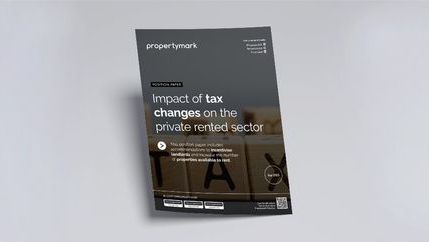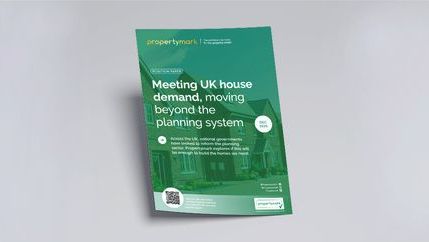
Avoiding rent controls
The Scottish Government must end the 3% rent cap and evictions moratorium on privately rented accommodation after March 2024 and avoid further long-term rent control measures. The policy has had a clearly evidenced detrimental impact on the supply in the PRS.
According to the Rent Service Scotland market evidence database, the average rents increased at a Scotland level in the latest year across all property size categories.
Empty and second homes
Scotland is in the grip of unsustainably low levels of stock for both sale and rent, yet thousands of homes are sitting vacant. The latest available data shows nearly 43,000 properties have been empty for at least six months.
Plans to increase council tax premiums will not be effective in freeing up second homes as long-term residences. Instead, Ministers should examine the approach taken in Wales, where the National Empty Homes Grant Scheme will award up to £25,000 for owners or prospective owners to remove significant hazards from their properties, make them safe to live in, and more energy efficient.
We also recommend expanding on the Welsh scheme with interest-free loans to private landlords who want to get their empty properties fit for human habitation. By taking a tenure-blind approach more suitable and affordable options can be made available for people to buy and rent.
Support for decarbonisation
If landlords are going to achieve Minimum Energy Efficiency Standards by 2028, and homeowners by 2033, clarity, support, and most importantly financial assistance will be essential.
Propertymark is calling for the existing interest-free loans available through Home Energy Scotland to be supplemented by grants for landlords which do not have to be paid back. In our survey, Energy efficiency in UK property, published in August 2023, 80% of sales and letting agents agreed the best way to encourage energy efficiency improvements is to introduce government grants that cover a broader range of home improvements.
Property taxes are a key lever for growth
Governments across the UK, including the Scottish Government, must carry out a full review of all taxes relating to private landlords to develop policies that promote long-term investment in the sector and reduce costs for tenants.
In our 2023 Autumn Statement representation to HM Treasury, we called for the reintroduction of Mortgage Interest Relief and other taxable deductions. While this is an action reserved for the UK Government, Ministers should investigate the impact tax policy has on landlords and the supply of PRS property in Scotland.
Currently, Land and Buildings Transaction Tax (LBTT) applies an Additional Dwelling Supplement (ADS) of 6% on top of standard rates if someone is purchasing an additional residential property. This means a buy-to-let landlord buying a £185,000 property can expect to pay £11,900 in LBTT, whereas someone buying the same home as a main residence would pay only £800.
ADS should be reduced to stimulate growth and to incentivise landlords to invest in Scottish homes.







